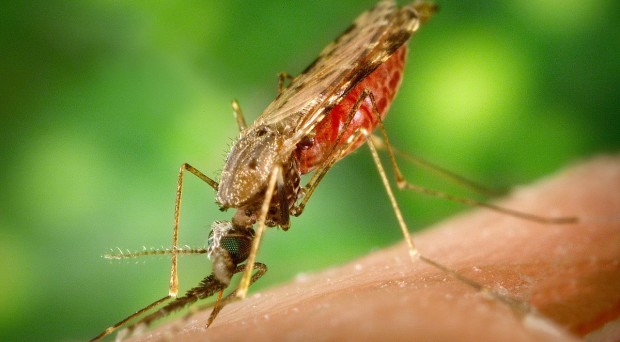
Hi Brian, congratulations on winning the Fungal Biology and Biotechnology student prize. Could you briefly describe your research and how it relates to mosquito control? What do you think are the future implications for malaria control?
Thank you very much!
In the St. Leger lab, we apply genomics and advanced DNA technology to make insect pathogens an important model system for studying/combating infectious processes in general, as well as offering surprising new possibilities for solving insect pest problems.
The ultimate fate of most insects is fungal disease: many fungi have cracked the lock of the protective cuticle and are able to burrow their way into a variety of insects, sometimes with incredible host specificity. The fungus we work with in our lab is naturally a mosquito killer, but we have modified it to express in the blood of the mosquito an insect-specific spider toxin (the hybrid toxin from the blue mountain funnel web spider in Australia), which allows the fungus to kill mosquitoes much more effectively. Already, with NIH support, we have confirmed our promising lab results in semi-field conditions working with Dr. Abdoulaye Diabate and his team in Burkina Faso.
The potential of our transgenic fungus to control the spread of malaria and kill mosquitoes is striking, and we hope to soon add these fungi to the arsenal of mosquito control methods out there. No one technology will be a silver bullet to prevent the spread of malaria, but if we intelligently integrate all of the incredible control methods already available or in development, our transgenic fungi will be a versatile and effective component in such a program.
What brought you to work with fungi? What do you enjoy most about your research?
The study of insect killing fungi is a natural marriage of my enthusiasm for both microbiology and entomology. I was drawn to my lab specifically by our use of genetic engineering techniques to further manipulate these fungi to generate more effective strains or mitigate risks.
I think you can make a convincing argument that fungi are the most intricately interconnected organisms on the planet: they form intimate interactions with organisms in nearly every ecosystem, and we are appreciating more and more how vital these interactions really are.
During our studies, we demonstrated that several very common insect pathogenic fungi colonize roots and promote plant growth, and we are engineering strains with customized properties with the aim of replacing chemical pesticides and fertilizers. We are only just beginning to understand the complexity and flexibility of the fungal kingdom, and I immensely enjoy how often new secrets of fungal biology are revealed during my research.
Where would you like to see your research taking you in the next few years?
In the next few years, I would like to see our fungal biotechnology applied in open field conditions to epidemiologically show that it can prevent the spread of malaria in Africa. These transgenic fungi have serious potential to lessen the burden of malaria on communities and save the lives of many children, and I plan to play a key role in the realization of this potential, which will include further lab and field testing of fungal strains, as well as staging workshops to engage the communities where they need our technology the most.
What advice would you give young scientists starting out in research?
Stay curious: find a system that excites you and start asking questions. Your research begins when your colleagues and the literature run out of answers to your questions, and if you’ve picked the right system, you will never run out of questions.
- Can fungi solve malaria and other insect-borne diseases? - 25th April 2016
Comments